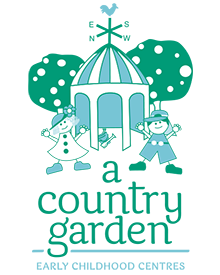An integral part of being a parent of a young child is finding the best kindergarten near you. Sadly, this is easier said than done.
There are a lot of conflicting facts about kindergarteners and their general needs out there, and taking the time to understand the nuances between different approaches available, as well as recognising your child's unique needs, is harder than ever.
Our team at A Country Garden is renowned in the industry for a commitment to excellence in early childhood education. To help parents throughout this process, we have compiled an insightful comparison between two prominent kindergarten methodologies: Play-Based Learning and the Montessori Kindergarten Approach. We’re looking to shed some light on the key differences around kindergarten reading and math games, general activity ideas, and everything in between.
What Does Kindergarten Mean?
The term 'kindergarten' is more than a mere prelude to formal schooling; it represents a vital stage in a child’s development.
Originating from the German words for 'children’s garden', kindergarten (4-6 year olds) is where young minds, like delicate saplings, are nurtured and encouraged to grow through exploration and interaction. Whether through Montessori’s structured learning or play-based activities, kindergarteners develop foundational skills in reading, math, and social interaction, through both games and exploration.
Facts About Kindergarteners: Is the Play-Based or Montessori Kindergarten Near You Best for Your Child?
Play-Based vs Montessori Kindergarten: Structure
The Montessori kindergarten approach prides itself on a structured environment where every material and activity is purposefully chosen. Such a structure fosters a deep understanding of a slew of real-world concepts with hands-on teaching, such as specialised kindergarten math games and reading activity ideas.
Play-based learning, however, offers a more flexible environment, allowing each child to explore a variety of activities at their whim, often creating a dynamic and spontaneous learning atmosphere.
Play-Based vs Montessori Kindergarten: Curriculum & School Readiness
The Montessori curriculum is comprehensive. Children will receive a soft introduction to several practical life skills, sensory activities, language, mathematics, and cultural studies in kindergarten environments. The holistic approach ensures a well-rounded development, preparing children for the next stage of their education journey, including kindergarten math games and reading skills.
Play-based programs might offer school readiness activities, but these are often distinct from the core play activities, focusing more on social and creative development.
Play-Based vs Montessori Kindergarten: Learning Materials
Educators will design and implement specific learning materials in a Montessori kindergarten to teach particular concepts, from sensory experiences to mathematics. These meticulously crafted materials enable children to engage in kindergarten activity ideas that promote comprehensive learning.
Play-based learning embraces a wider array of toys and play items, engaging in reading and math games that are often less structured but more varied, encouraging creativity and imagination.
Play-Based vs Montessori Kindergarten: Teacher's Role
Montessori teachers adeptly guide and observe those in their care, allowing children to learn through self-discovery and exploration, but also with clear direction. Such an approach significantly differs from play-based settings, where teachers often play a more involved role, actively engaging in the children's choice of play to steer both group and individual learning experiences.
Play-Based vs Montessori Kindergarten: Learning Pace
Of all the facts about kindergarteners we’ll cover, perhaps the most important is that all children develop at different speeds. A cornerstone of the Montessori philosophy is to embrace this and allow children to learn at their own pace. From kindergarten to higher ages, this approach deeply respects individual learning styles and paces, not confining any child to a potentially restrictive reading schedule, math games and so on.
Play-based programs, which might sound more free-spirited, may actually hold learning to a set array of kindergarten activity ideas, potentially overlooking the unique developmental timelines of each child.
Play-Based vs Montessori Kindergarten: Independence
The Montessori method is synonymous with fostering independence and self-motivated learning. From kindergarten reading to practical life skills, children are encouraged to take charge of their learning journey. This level of independence is less pronounced in typical play-based settings, where activities are often more group-oriented and teacher-led.
Play-Based vs Montessori Kindergarten: Error Correction
A unique feature of Montessori materials is their built-in error correction mechanisms. These further encourage children to engage in self-assessment and correction, fostering a deep understanding of concepts and self-reliance. Parents may find this less prominent in play-based learning, where error correction often involves direct teacher intervention.
Montessori Kindergarten with A Country Garden
Choosing the right educational approach for your kindergartener is a decision that shapes their foundational years. A Country Garden offers a nurturing pre-kindergarten and kindergarten environment where your child can thrive through self-discovery and independent learning. We invite you to explore the Montessori difference and see why we are the best kindergarten near you.
Speak with our team today to learn more.


